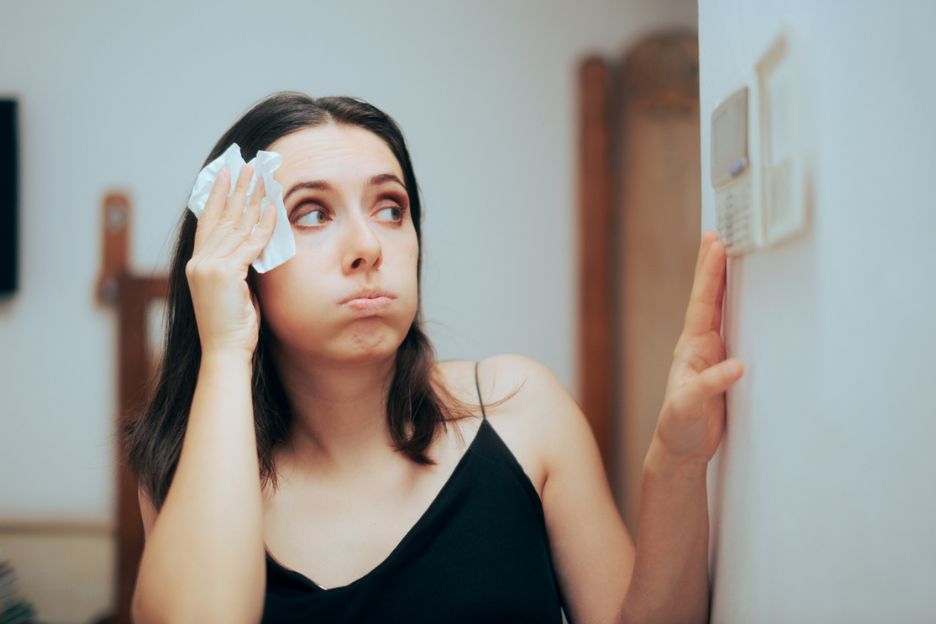If your HVAC is malfunctioning, it’s important to act right away. Seemingly small problems may actually be big ones, and big ones can lead to a complete breakdown. A malfunctioning HVAC could be a serious threat to your home and health. Here are six HVAC danger signs that a professional should handle immediately.
1. Refrigerant Leaks
R-410a (Puron) is a non-flammable, non-toxic liquid used as a refrigerant to cool your air conditioner. In 2020, it replaced Freon, which was discontinued to protect the ozone layer. Although Puron isn’t toxic, a leak can spell danger. The substance is heavy enough to fill an entire room and force out oxygen until you suffocate. Although this is rare, it’s still advisable to be aware of the possibility of this happening.
Your system may display these signs of a refrigerant leak:
- Inadequate cooling and heating.
- System shutdown.
- Frozen evaporator coils.
2. Old HVAC
The lifespan of the typical HVAC system is 12 to 20 years, but many start declining around 10 years and lose efficiency. Old units can cause problems with mold, allergens, and contaminated ducts. This can trigger chronic colds and allergies if the problem with the system isn’t resolved.
Additionally, the air can become contaminated with deadly bacteria, such as the ones that cause Legionnaires disease. When your unit is this old, a technician can determine if there are HVAC danger signs indicating your system should be repaired or completely replaced.
3. Electrical Problems
Hear a sizzling or crackling sound inside your home near the air handler or near the outside unit? Chances are you have an electrical problem. An electrical failure can be caused by:
- Failing motor.
- Broken capacitor.
- Malfunctioning compressor.
- Loose wiring.
By far, the worst of these is loose or damaged wiring. The sizzling or crackling sounds may signify a dangerous malfunction called arcing. Arcing occurs when electricity jumps through the air from one electrical connection to another, causing a spark (think lightning). Arcing can cause an electrical fire, and its telltale sounds shouldn’t be ignored.
4. Foul Smells
Foul smells shouldn’t be coming from your air conditioner. None of these odors are normal:
- Gun Powder: Does it smell as though something is burning? This could indicate that your AC’s fan motor or circuit board has shorted out.
- Sweaty Feet: This odor is probably caused by water that isn’t adequately draining from your system. The dirty water is responsible for this unpleasant smell.
- Exhaust Fumes: This odor indicates you have a fluid leak in your system that could get worse if not immediately taken care of by a professional.
- Skunk Spray: This is a hazardous smell that usually signifies a gas leak. This type of leak can cause asphyxiation or an explosion. Natural gas is odorless, but it contains a foul-smelling additive called Mercaptan that makes leaks easier to detect. If you smell natural gas, you should immediately leave your house and call an HVAC professional to handle the leak.
5. Health Problems Caused by a Dirty HVAC
Indoor air pollution is just as much of a concern as outdoor pollution. As a matter of fact, the EPA determined that indoor air pollution levels can be two to five times higher than outdoor levels and sometimes as much as 100 times higher.
This is an urgent issue because many people spend the majority of their time indoors.
It’s vital to your wellbeing that you have your HVAC regularly cleaned to prevent or reduce the following health issues caused by a dirty system:
- Fatigue: It’s harder to breathe contaminated air because it’s weighed down with pollutants. When your body struggles to breathe, you’ll become fatigued. If you’re home for a substantial amount of time every day, you’ll become even more tired, because your lungs have longer battles with contaminated air.
- Allergies: Poor indoor air quality can cause allergies, asthma attacks, a stuffy nose, coughing, and other breathing issues.
- Airborne Illnesses: A dirty HVAC is like a welcome mat for viruses and bacteria. They can get stuck in any buildup or residue in your system and then get scattered around your house.
- Dry Skin: A dirty HVAC can cause dry skin because it lowers your home’s humidity (the amount of moisture in the air). Dry skin can also be caused by airborne irritants.
Contact Us
Are you concerned that your system has any of these five HVAC danger signs? If so, it’s important to get them handled immediately. Call us today, so our expert technicians can diagnose and resolve HVAC problems for your health and safety.

